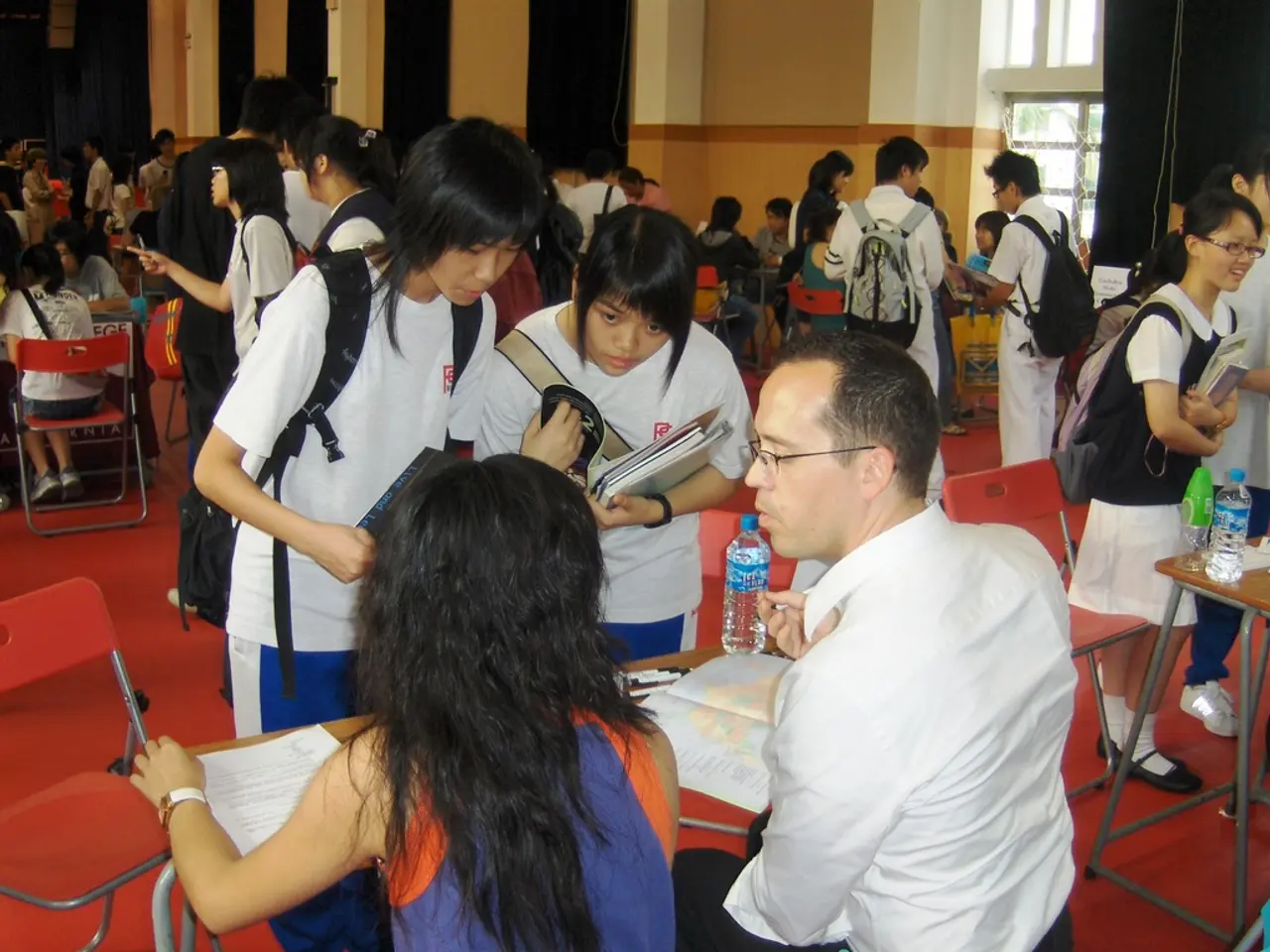Impact of Artificial Intelligence on the Transformation and Non-Transformation of Education (Dylan Wiliam's Perspective)
Workshop to Discuss AI's Impact on Education and the Future of Work
Artificial Intelligence (AI) is set to revolutionise the world of education, and a workshop led by renowned educational expert Dylan Wiliam aims to explore this transformation. The event, titled "Dylan Wiliam Workshop 2025," will take place at the Grand Millennium, 71 Mayoral Drive, Auckland, on 11th September 2025, from 9:30 am to 3:30 pm.
The workshop will delve into the impact of large language models like Chat-GPT on education, focusing on professional development. However, its scope will extend beyond the immediate effects of AI, as it will also discuss longer-term issues, including the potential need to change the purpose of education as more work is done by machines.
AI is poised to redefine the educational landscape, not just in schools but also in the world of work. The workshop will discuss the possibility that students may need to be prepared for a world without traditional jobs, as AI continues to automate various tasks.
One of the key areas where AI can make a significant impact is in student assessment. AI can radically affect student assessment, making it less expensive to assess authentic work without increasing teacher workload. This could free up teachers to focus more on human-centered tasks, such as mentoring, counselling, and designing more effective lessons.
AI can also help students manage their own learning, providing personalised learning paths and recommendations based on their strengths, weaknesses, and interests. For teachers, AI can assist with administrative tasks, allowing them more time to focus on teaching and lesson planning.
However, the adoption of AI in educational settings also presents several ethical challenges. These include student privacy and data security, algorithmic bias, academic integrity concerns, and equity and access issues. The workshop will address these challenges, providing strategies for robust data governance, bias monitoring and inclusive design, academic policy adaptation, professional development, promoting critical AI literacy, and collaborative efforts among educators, policymakers, developers, and communities.
The aim of the workshop is not to replace teachers but to improve education through technology. By understanding and addressing the ethical challenges posed by AI, educators can ensure that AI supports fair, secure, and effective learning environments, preparing students for a future where machines may do much of the work, but human skills like critical thinking, creativity, and empathy remain essential.
To register for the workshop, visit www.learningnetwork.ac.nz/events/dylan2025.
[1] European Commission. (2021). Artificial Intelligence: A European Approach to Excellence and Trust. Retrieved from https://ec.europa.eu/info/publications/artificial-intelligence-european-approach-excellence-and-trust_en
[2] UNESCO. (2020). Recommendation concerning the Promotion and Use of Artificial Intelligence for Sustainable Development. Retrieved from https://en.unesco.org/commissions/sustainable-development/recommendation-concerning-promotion-and-use-artificial-intelligence-sustainable-development
[3] Wiliam, D. (2020). Embedded Formative Assessment. Bloomsbury Publishing.
[4] Manyika, J., Chui, M., Bughin, J., Dobbs, R., Roxburgh, C., & Byers, A. (2017). People + machines: rethinking how technologies will change the nature of work. McKinsey & Company.
[5] Federal Trade Commission. (2020). Protecting Consumer Privacy in an Era of Rapid Change: A Proposed Framework for Businesses and Policymakers. Retrieved from https://www.ftc.gov/reports/protecting-consumer-privacy-era-rapid-change-proposed-framework-businesses-and-policymakers
- The workshop, focusing on the impact of AI on education and future work, will also discuss the potential for technology like Chat-GPT to revolutionize student assessment, making it more effective while reducing teacher workload.
- To ensure a secure and fair implementation of AI in education, the workshop will address real-world challenges such as data privacy, algorithmic bias, and equity in access, adopting best practices proposed by recognized sources like the European Commission, UNESCO, and the Federal Trade Commission.




